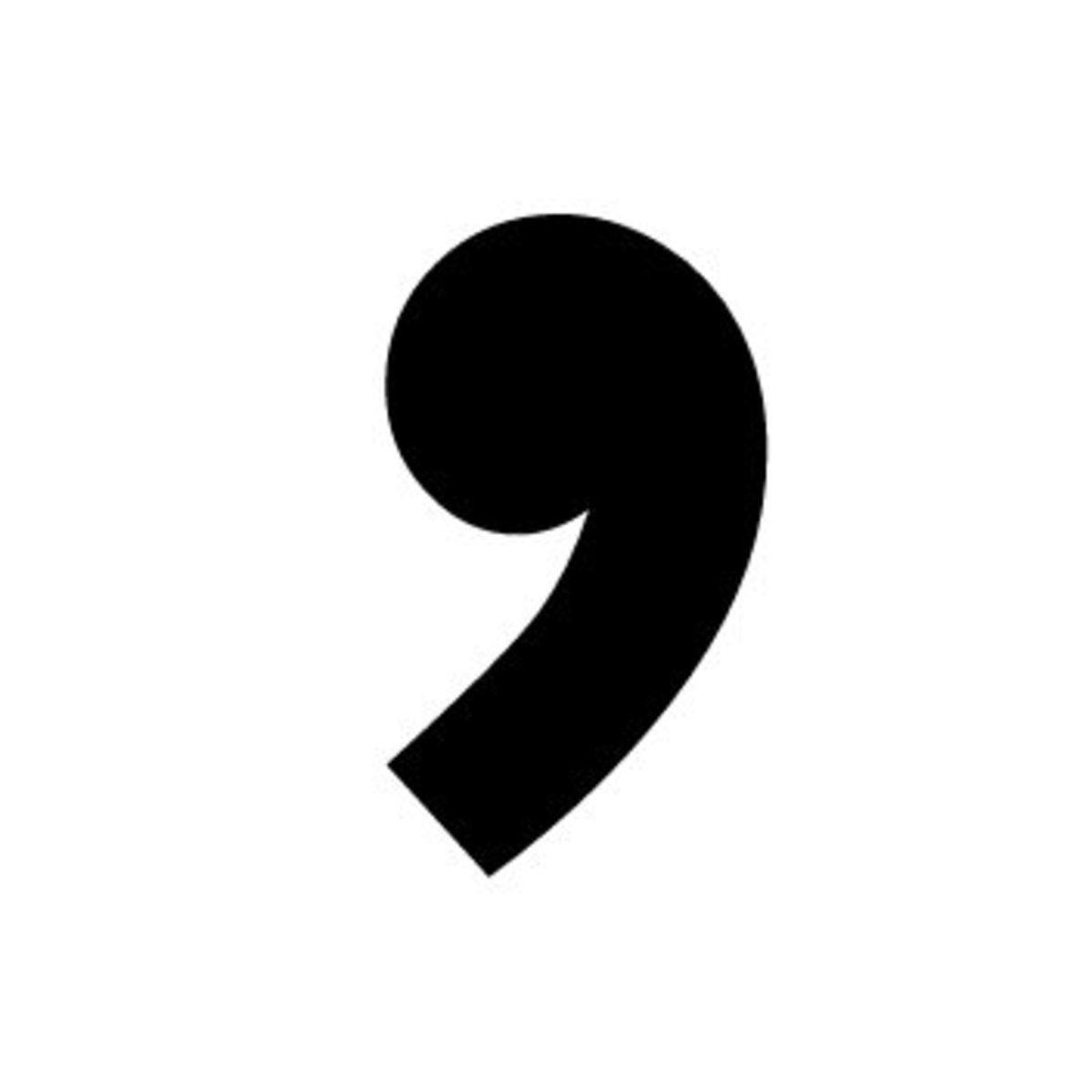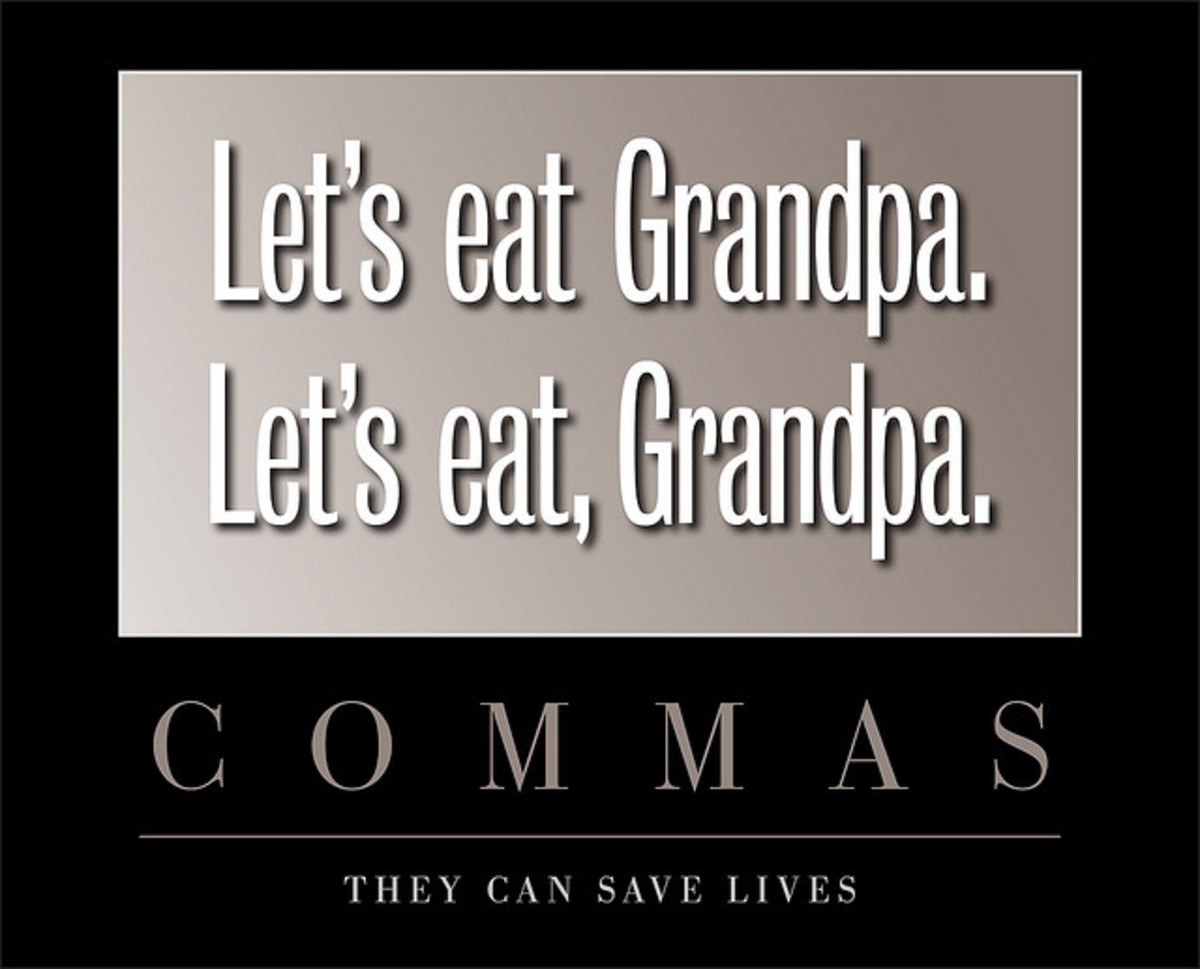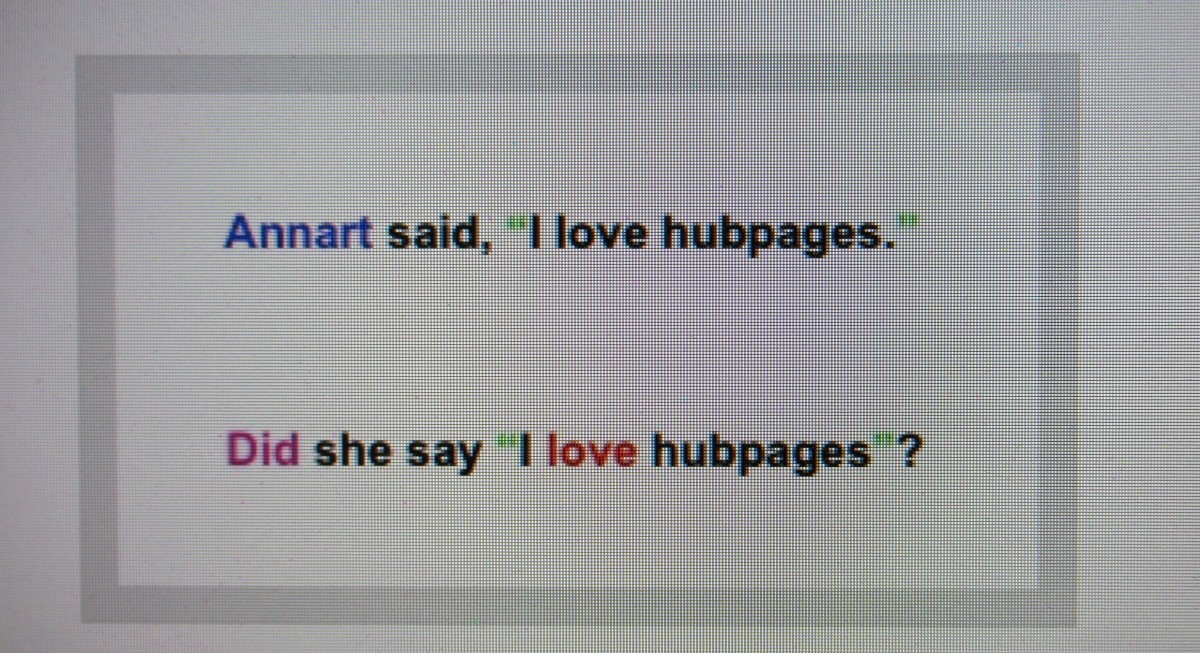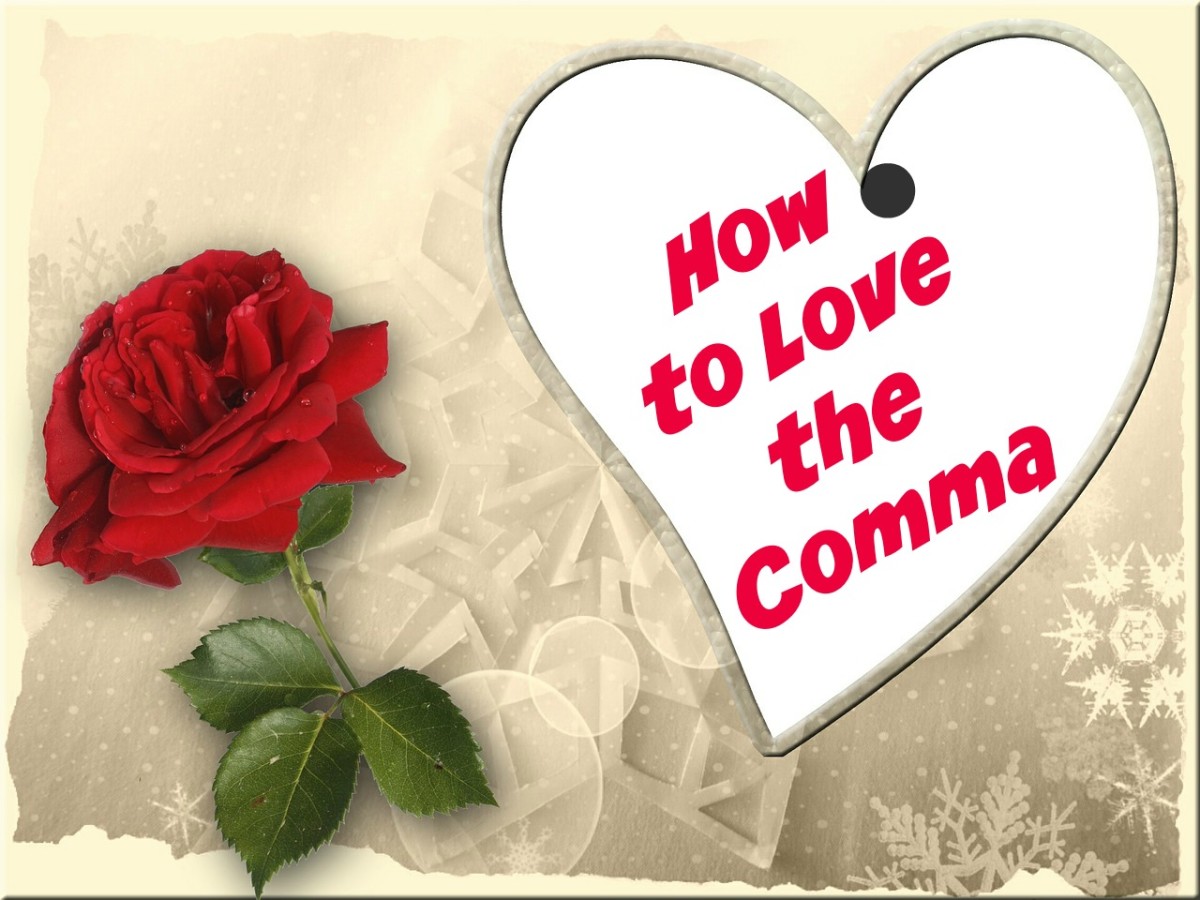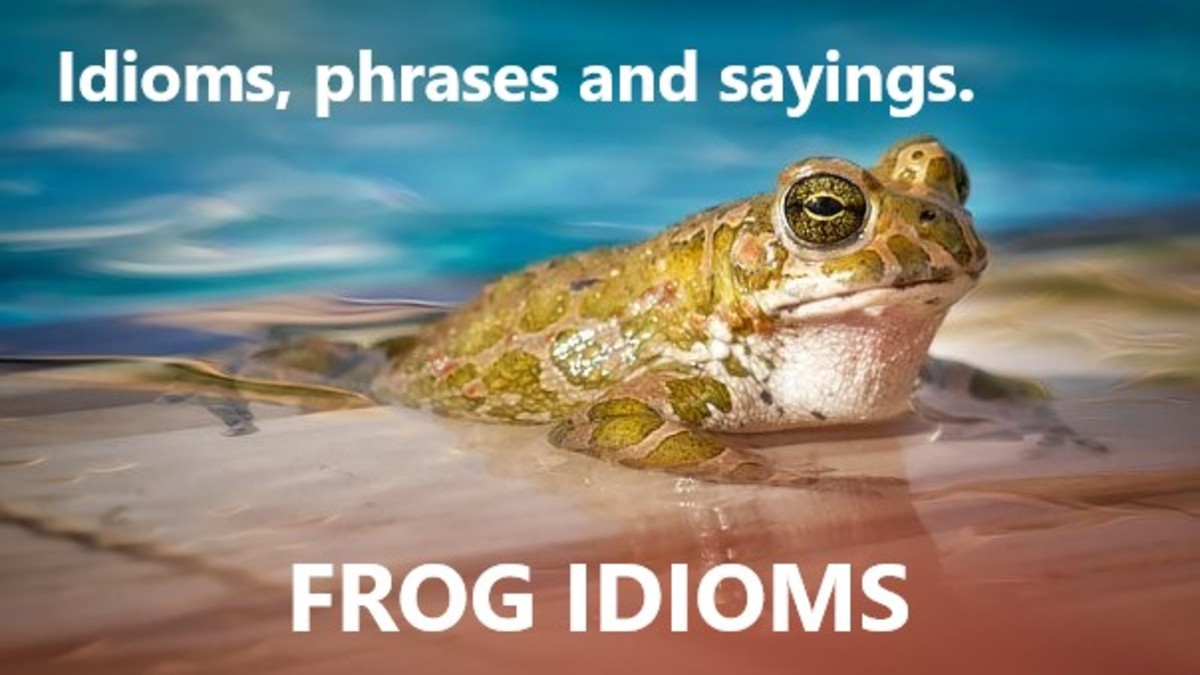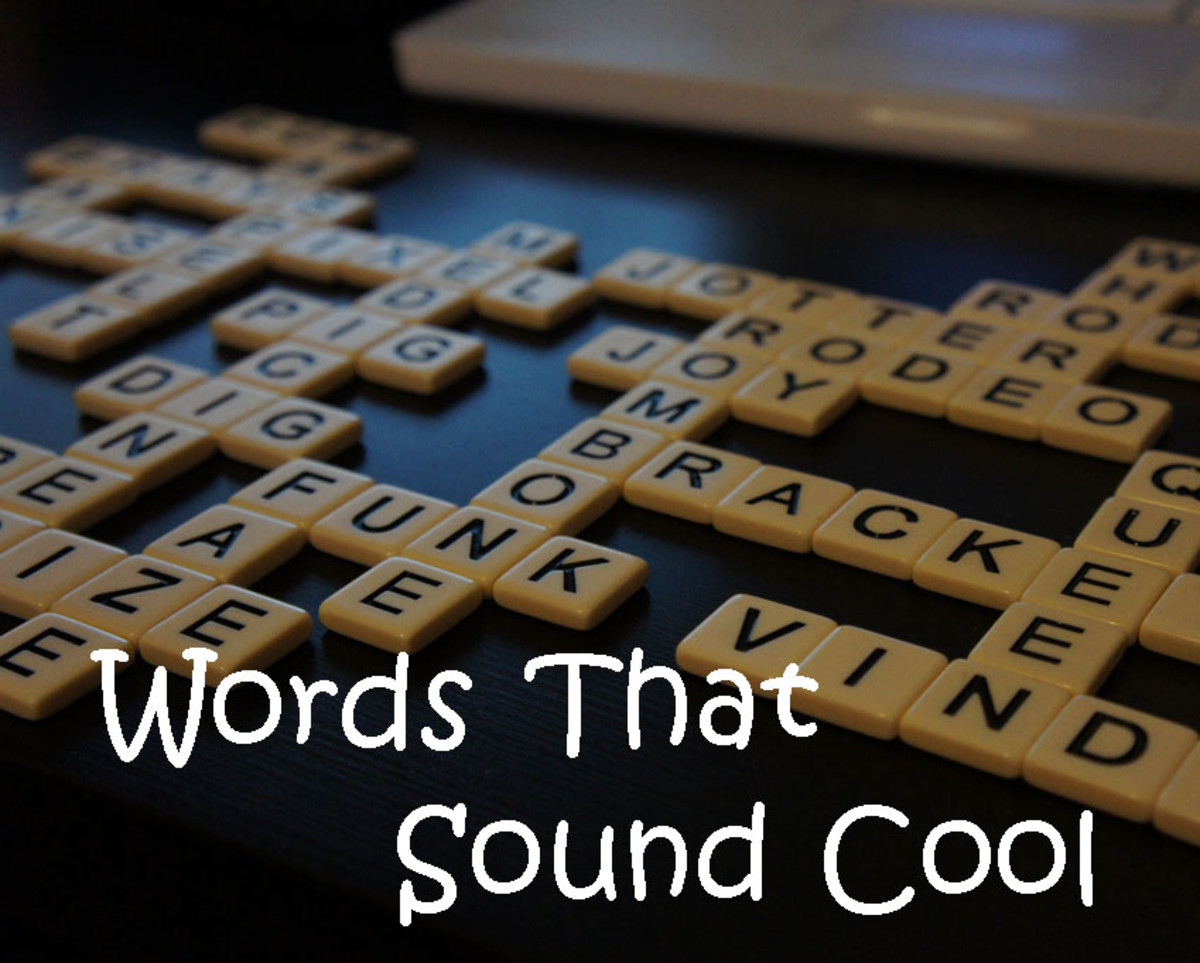Can You Punctuate?
I'm such a saucy lass!
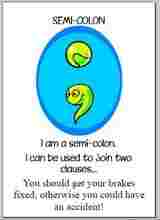
Puntuation makes writing an art
Can You Punctuate!? Try this!
“Cop shouted, ‘.’ Began to ‘?’
Mark, with an ‘!’ cried, ‘I can’t ‘.’ it’s my ‘:’
I’ll have to ‘-’
Have you worked it out yet? If you give up, read on…
“Cop shouted, ‘stop.’ Began to question Mark.
Mark, with an exclamation, cried ‘I can’t stop, it’s my colon,
I have to dash.’
(From “Charged Particles” by robert c de m).
The moral of this short verse being, where would we be without punctuation? Yet so many people manage to communicate and go through life with hardly being able to punctuate adequately, much less properly, in a classical sense.
Here’s another fun example which I am sure many have come across. “Ann Boleyn walked and talked an hour after she had her head cut off.” Go on, punctuate that to make sense (a semi-colon after the word ‘talked’ will do).
Or, a bit harder, “Time flies you cannot they go too fast.”
Not easy at first. Imagine two Oxford dons chatting as they watched a bunch of house flies flitting around the light fitting.
They are wondering if they can determine the speed of flies in flight with a stop-watch. One professor decided it was impossible, and said, “Time flies? You cannot; they go too fast.” Get it?
Or the impossible, “Tom had had had Dick had had had had had had had been correct.” *
See if you can punctuate that to make sense and I’ll clue you in at the end of the hub…no cheating now!
So punctuation is definitely necessary sometimes to give the sense of a sentence. It shows where dialogue is used in any writing. It can also adorn prose and poetry to add beauty and cadence to the author’s carefully chosen words. It must be used at other times in commercial work, such as lists, and care must be needed to use the right stops and commas in amounts of money to prevent over and undercharging, for example. Purposeful misuse of punctuation is a valuable tool for comedians or those who seek out nonsensical headlines, their meaning skewed by incorrect punctuation.
Like “A woman, without her man, is nothing.” When the writer meant to say, “A woman: without her, man is nothing.” The use of the colon and movement of commas exactly reverses the meaning.
One of the nastiest little punctuation marks is the apostrophe, usually before or after an “s,” which seems to want to wander everywhere.
Taken from the Greek, the busy little apostrophe was first used only to mark an abbreviation, or letters left out of a word. This still one of its main functions today (and note how it just got a rest in this use of “its”). When we want to roll our sleeves up, and write casually, we use words like “shan’t” for shall not; “don’t” for do not; “won’t” for will not, and all the rest.
Even the Oxford Dictionary tells us that the use of the apostrophe has changed through the ages. We already saw the apostrophe is not used in the possessive pronoun, “Its.” And, with relief, we see that it is never used on any possessive pronouns, (its, yours, hers, etc., etc., or possessive determiners (my, your, our, etc., etc). It is, however, waiting in the sidelines for indicating a possessive in a singular noun, “The man’s pen.” For the plural possessive, the apostrophe follows the “s” “The mens’ pens.” ( I note my spell-check had this wrong!)
The apostrophe indicates time or quantity, “In one week’s time.” (singular). “Four pounds’ worth of chocolates.” (plural).
The omission of figures in dates, “The Autumn of ‘10.”
In letters in popular abbreviations, “’Vegas” (Los Vegas), “Jo’burg,” Johannesburg. The “Will o’ wisp.” (?) I don’t know what it is!) Though for popular contractions that have entered the lingua franca the apostrophe is normally left out, “Tele,” “fridge,” and so on. Also usually left out of “Its” when used to replace words in a phrase, such as “it’s a lovely night,” “its your turn to get in the apple barrel,” (ask a sailor!).
The Golden Rule that is often broken is, You MUST use an apostrophe when “It’s” stands for it is, or it has.
Apostrophes also have several uses in names, such as Scots and Irish, “O’Keefe, O’Leary,” etc. And making words plural, (do’s and don’t’s). To really understand all the apostrophe does, (and there’s more) buy a good book on punctuation and bore yourself to death. Here, we have looked at some of it.
A peep at the comma.
That most utilitarian of punctuation marks, often used when there’s no need at all, and just as often, hurt and bewildered, left lying on the side-line when it should have been there.
Many writers and linguists, have about come to blows over use of the comma. I, curiously, rather like the little chap, and use it whenever I can, even if the sentence can, easily, proceed with, or without it. After all, they are free, and not to be sneered at.
A great lover of the comma was the poet, W’m Wordsworth,(ahem).
“She lived, alone, and few could know
When Lucy ceased to be,
But, she is in her grave, and, oh,
The difference to me.”
The first line definitely doesn’t need a comma, certainly not between lived and alone. It doesn’t, because without the word “alone,” the sentence makes little sense “She lived and few could know” Neither does it between but and she in the third line, or after grave. The use of commas where a conjunction like “and” is used is misused by so many people.
Commas, really, allow a reader to take a brief breathing space to take in what has been said, and to understand the direction the piece will be going. If you remember that, it will give you a better idea of when to use one than all the confusing erudite-speak from a hundred grammar books. Using the comma too often and incorrectly will make your writing “stutter,” just as if it was being read out loud by someone with a speech impediment, and your essay will not flow.
There is no hope in hell of a simple hub article addressing all the mysteries of even the easiest of all punctuation marks to master, the “full stop,” or “period.”
Full stop (UK) or Period(US).
The mark used to end sentences. After some abbreviations. Albert Finney, Jr. (Note then, the second period which would be used to end the sentence, is normally omitted.)
In titles such as Mr, Dr, Prof little used in UK, but used in USA Mr., Dr., Prof.
British English also often omits periods in acronyms, such as USSR, in the States, U.S.S.R. My own feeling is they should be used when the acronym is not well known to avoid confusing it with some word. Rather as we leave commas out of accepted abbreviations (fridge, etc.).
Used in amounts of money, along with the comma. £1,000.000
You normally allow two spaces after the period, question mark colon and exclamation mark; 1 for the comma and semi-colon.
A lot of common sense need be used in writing readable prose. Not enough writers sit back and read their own work out loud to see what it sounds like. That is often a good way to check on the punctuation; at least do that occasionally, until you are confident you have mastered the more important rules. (I just read my last sentence aloud and decided to put a comma after occasionally).
The main point to remember when using the comma to separate items in a list is that it is used in place of the words “and,” and “or.” The reason a comma is used is it makes the sentence much less contrived and clumsy. For example “I had a lot of fruit to eat today, cherries and strawberries and blackberries and pineapple and….“ Not incorrect grammatically but your reader is snoring. The only “and” that should have been used is the last to indicate the final item was coming up.
A point to remember, your computer spell-check is likely to be worse than you are at punctuation, which is why no real attempt was made to program them to do that. You can buy better software online.
He semi-colon and the colon: are they becoming extinct?
The use of these two, stronger than the comma, and less so than the period, have fallen into disuse by newspaper reporters and editors. As sentences and paragraphs have become shorter and more punchy, there is less need for what these two have had to offer for about one thousand years. They have been bones of contention among the literary set since the quill was invented. I personally use them because the semi-colon is so good for pausing between diverse ideas; the colon before launching into modifying explanations of the primary sentence (etc).
A very useful little ditty exists to give an idea of what our pausing punctuation marks demand in the way of time, or tempo.
“The stops point out, with truth, the time of pause
A sentence doth require at ev’ry clause.
At ev’ry comma, stop while one you count;
A semicolon, two is the amount;
A colon doth require the time of three;
The period, four, as learned men agree.”
By Cecil Hartley in 1818.
I mean, punctuation doesn’t really demand much of us, does it? Especially those who make a living with the pen, surely they should take a little trouble to learn the easy rules. Imagine what a professional; musician has to go through in learning the infinite demands of the musical score!
But will today’s kids ever need to punctuate at all, never mind correctly, unless they enter academia. Emailing, texting, facebook-ing. Most can’t - or don’t bother to - spell. In fact, it seems uncool for teens to use established language and grammar on the various sites and on their cellfone.
Yet someone will have to write attractive prose or we will have no books soon! And, although it may not be mandatory, like learning a second language, learning your own is something that will stand you in good stead in the future where to communicate may be the most important skill.
I’m not going to delve further into the mysteries of punctuation, but can suggest a good little book on the subject: “Eats Shoots & Leaves,” by Lynne Truss. Funny, succinct and well written; almost worth buying for the explanation of the title!…
* As promised, here’s how to make sense of the “had had” sentence.
Right. Two pupils have used the words “had,” or “had had” in a composition and their masters are discussing which was correct. “Tom had had, “had;” Dick had had “had had.” “Had had” had been correct.” It’s OK!!

